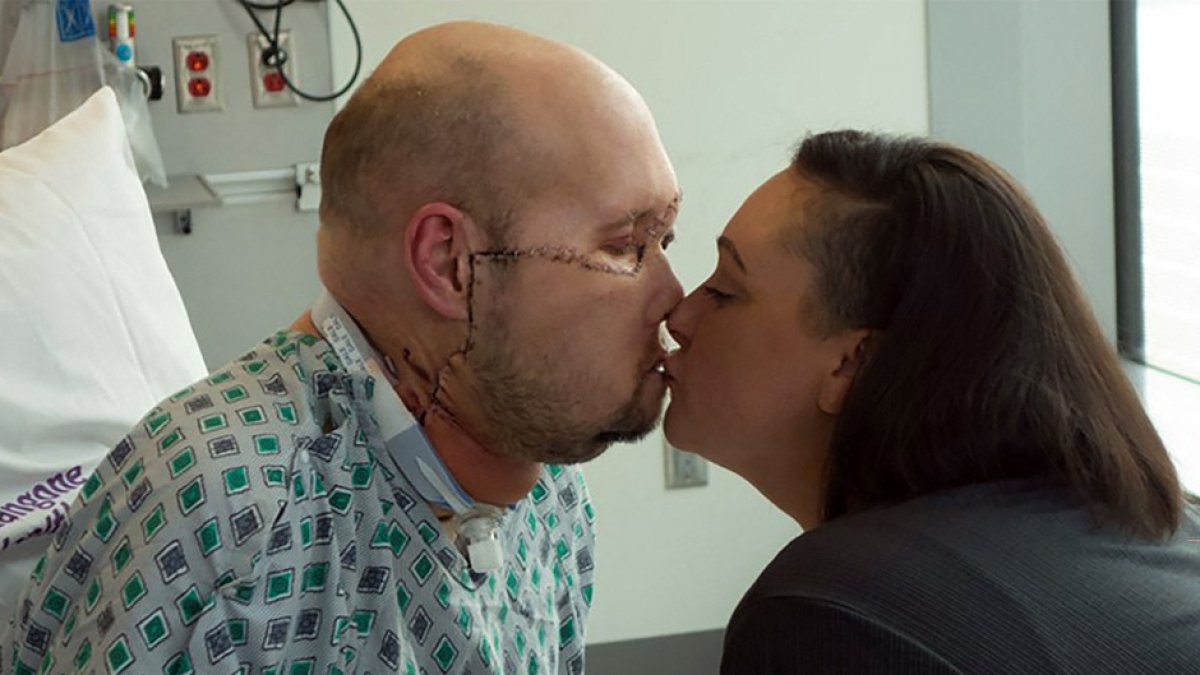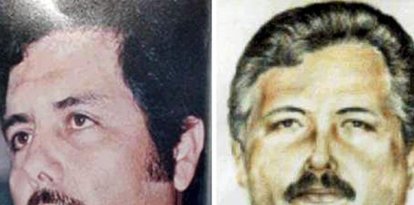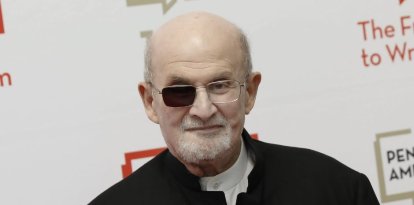NYU Langone Health team performs first complete eye transplant
Aaron James lost an eye and part of his face in a work accident in 2021. Two years later, a 21-hour surgery could restore his sight.

(Handout / NYU Langone Health / AFP)
A medical team at NYU Langone Health (New York) achieved a historic milestone by performing the first partial face transplant to completely replace an eye. The patient, Aaron James, lost an eye and part of his face in a work accident in 2021. Two years later, a 21-hour surgery has reconstructed his face and could, in time, restore his sight.
His face, James' wife Meagan tells CNN, is not how she remembered it. He had blue eyes, and now one of them is brown. Nor were his nose, lips and cheeks the same, which also surprised her. But then she saw the excitement in her husband's new face. In that moment, Meagan remembers, all her feelings changed: "It was a crazy, great, weird, strange, ecstatic, happy feeling. I was just happy he made it through, and everything was good in the moment."
A complete eye transplant, a pioneering procedure
The procedure, performed in May of this year by more than 140 experts, is a milestone in the medical world. The lead surgeon, Dr. Eduardo Rodríguez, explained to Reuters the importance of this procedure for the entire medical community although, he assured, it is not certain that Aaron James will recover his sight:
However, the doctors do not rule out that he will recover his vision. According to Dr. Rodríguez, other research teams are working on procedures that could allow Aaron James to regain his sight. If they are successful, the expert assures that he could consider performing a new operation so that the patient recovers his sight: "If we can work with other scientists that are working on other methods of restoring vision or restoring images to the visual cortex, I think we're one step closer," he said.
Aaron assured CNN that he would love to regain his sight. However, he stated, he would be just as happy if he did not recover it since, for him, the important thing is that this transplant is an important medical advance that allows other people to enjoy this same opportunity that he now has:

























